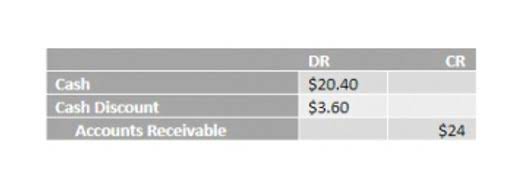
Effective communication with an outsourced accounting provider is crucial for successful collaboration. Establish clear communication channels, set expectations upfront, and schedule regular meetings to discuss progress and address any issues that may arise. An in-house accountant may not have the same breadth of knowledge and experience as a team of external professionals, potentially limiting the scope of advice and services you receive. Hiring an in-house accountant involves significant costs, including salary, benefits, training, and overhead.
If for some reason you really need to halt operations, you can terminate or freeze the contract and restart it when it’s more feasible or needed. In-house accounting can provide control, but it also balance sheet has significant challenges impacting your business’s financial health. With an ideal location on Central Park, this luxurious Midtown Manhattan hotel offers elegant on-site dining options. It features spa services, a 24-hour fitness centre and rooms with custom designed furniture.JW Marriott Essex House New York boasts elegant rooms with a flat-screen TV with cable and a minibar. The hotel also offers Internet TV equipped with high-speed access to Netflix, HuluPlus, YouTube and Pandora.

Outsourced accounting, on the other hand, involves hiring an external firm to manage your accounting needs. This can provide access to specialized expertise and often results in cost savings. Many businesses find that outsourcing allows them to focus on their core operations while leaving financial management to the experts. The decision whether to outsource accounting functions or keep them in-house is crucial for businesses of all sizes.
Many small business owners and start-ups, opt for this in the beginning. Also, learning these programs will better tune you to your future accounting department. This is something you can integrate into your business before or with the consultation of your new hire.
Both options have their advantages and disadvantages, and the choice depends on various factors such as the size of the business, budget constraints, and the complexity of accounting needs. This comprehensive guide explores the pros and cons of outsourcing vs. in-house accounting to help businesses make an informed decision. As a small business owner, managing your accounting needs effectively is crucial for maintaining financial health and supporting growth. One of the key decisions you’ll face is whether to handle accounting in-house or outsource it to an external provider. Here, we compare in-house accounting vs outsourcing to help you determine the best fit for your business. Outsourced accounting, on the other hand, is incredibly cost-efficient.


Dave Schnitt, CEO of IQ BackOffice, discusses the services they provide and the value they add to their clients. Whether your company will benefit from having an in-house accountant depends on the reasons you need In-House Accounting vs Outsourcing an accountant and several other factors. Comparing in-house accounting to outsourcing reveals distinct differences in financial implications and operational dynamics. It is also true that communication is a big part of why in-house accounting is still so prominent.
It’s important to have a detailed transition plan, clear communication channels, and a thorough understanding of the provider’s capabilities to mitigate these challenges. Additionally, evaluate their communication practices and ensure they can provide the level of support and responsiveness your business needs. Book a no-commitment, free consultation call and see how we can help you elevate your financial management. Simplify salary decisions with the Salary Calculator – a smart tool for determining fair, competitive compensation Law Firm Accounts Receivable Management based on industry, location, and experience. Links to third-party websites may have a privacy policy different from First Citizens Bank and may provide less security than this website. First Citizens Bank and its affiliates are not responsible for the products, services and content on any third-party website.

Smaller businesses often like the personal touch of having an in-house accountant who knows them well. On the other hand, larger companies might find that outsourcing gives them more flexibility and access to expert help. Remember, accounting is not just about keeping track of money; it’s about helping your business grow and succeed in the long run. Take your time to weigh the pros and cons of each option to find what works best for you.
This means accountants directly hired by the company handle tasks like bookkeeping, generating reports, and tax preparation. In essence, it’s the traditional way of handling a company’s finances, with the accounting team working internally rather than relying on an external firm. The decision between whether to use outsourced accounting services, do it yourself, or hire someone to handle it in-house can be a challenge.